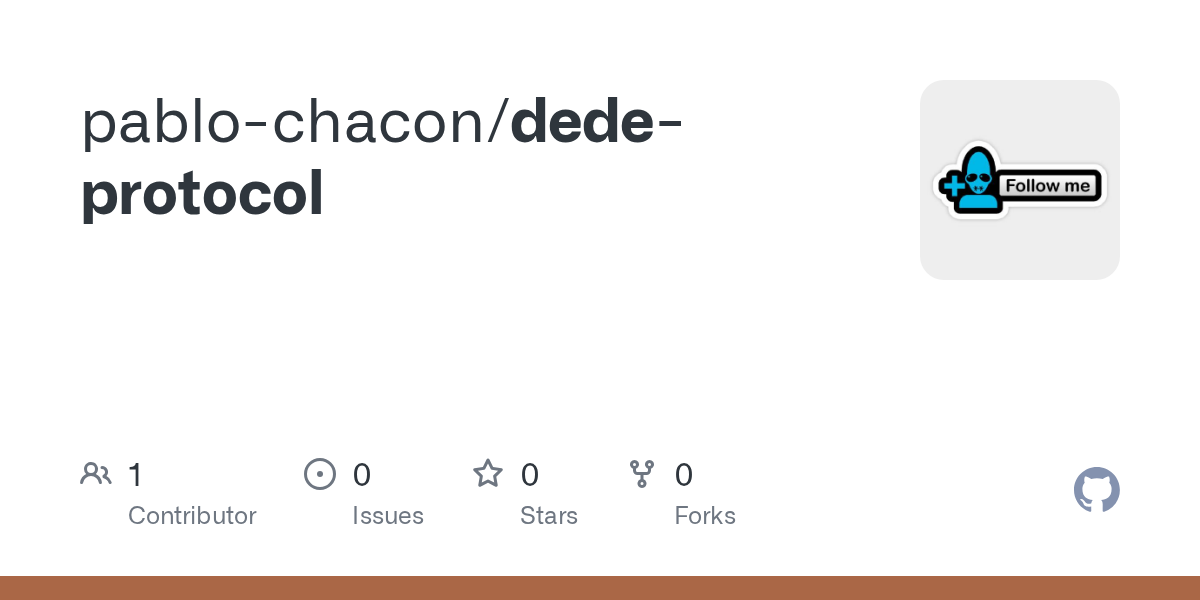This is DeDe (Decentralized Delivery) Protocol:
Not a token, not speculation. It’s infrastructure, deployed on Ethereum mainnet.
We’re watching the same pattern everywhere: Postal systems collapsing. Parcels lost, broken, stolen or seized. Increased surveillance, ID requirements, more decay. Less reliability, less privacy, less dignity.
The institutions that were supposed to protect our right to communication are failing, even though privacy of correspondence is guaranteed under UN Article 12 and ICCPR Article 17.
So instead of being stuck in surveillance and Inefficiency-As-A-Service, we have to build parallel systems immune to centralized control. Systems by us for us, in the spirit of the Fediverse:
community-powered
decentralized
permissionless
protocol, not platform
no corporations
no bosses
no surveillance
no extraction
DeDe (Decentralized Delivery) is not a token, not a scam, not a VC product, not a walled garden. It’s a rail, an open delivery settlement layer anyone can build on.
What it does:
Every parcel is an NFT with a lifecycle
Escrow is automatic, trustless, and transparent
Anyone can create an NFT-Parcel
Anyone can carry parcels while they’re already on the move
No fleets, no gig exploitation, no “shadow wages”
Zero extra CO₂, use the movement people already make
Protocol fee is immutable (0.5%), so nobody can rug / extract
Privacy is natively built in.
Fully MIT-licensed & open-source
It’s not a startup. It’s not a marketplace. It’s not a company.
It’s the peoples infrastructure for physical logistics.
Because if we want a free world, we can’t outsource critical communication infrastructure to decaying governments, surveillance corps, or gig economy parasites.
If you want to understand the philosophy behind it, here’s the full manifesto + artwork:
Medium: https://medium.com/@ekarlsson66/dede-the-delivery-rail-for-a-free-world-e7be944b90fc
If you want to poke around the contracts:
DeDe Protocol GitHub (MIT): https://github.com/pablo-chacon/dede-protocol
DeDe Quik-Start Templates GitHub (MIT): https://github.com/pablo-chacon/dede-templates
No pressure to “like crypto.” DeDe is just a tool. Use it, fork it, ignore it. All up to you. More decentralized civilizational fundamentals, means less dependency of collapsing control systems. We must have working alternatives when the centralized systems break down.
Against decay, we build. That’s the spirit of the fediverse. That’s the spirit of DeDe.
If it is deployed on Etherium mainnet, that implies there’s a monetary/crypto based cost right?
From the Medium article:
DeDe allows:
Commuters Cyclists Students Gig workers Travel enthusiasts…to earn money by delivering parcels along the path they were already taking.
…
It simply turns existing human movement into an economic engine.
Those statements sound like a person is actually transporting stuff physically. I’m not sure I see the connection. I tried reading the github too but it got more technical than I can understand.
Is this a courier service for physical packages that pays the couriers with crypto by doing shipments paid with crypto? How would that be trustworthy? A courier could simply open the package at the risk of non-payment for potentially stealing valuables. Or is this digital packages only? But if that’s the case, what would physical activity be needed for? What’s to stop this from turning into that Black Mirror episode where people are cycling in place constantly, to pay their electric bills?
Just trying to wrap my head around this and I think I’m missing something.
Here is a clearer explanation. DeDe is not a courier service and not a gig app. It is only infrastructure, a smart contract protocol.
DeDe is not an app, not a marketplace and not a company. It is a tiny delivery settlement rail that sits on Ethereum, similar to how Bitcoin sits under money transfers and Matrix sits under messaging. Those systems do not provide apps or account systems, they provide rails. DeDe works the same way but for physical delivery.
This is what the protocol actually does. Anyone can register a parcel on chain as an NFT. The sender deposits the parcel value into escrow, because the escrow amount represents the value of the item/parcel/delivery. Anyone who wants to can pick up a parcel and deliver it. It is completely voluntary and there are no assignments, no scheduling and no forced routes. The smart contract holds the escrow until both sides confirm that the parcel arrived. When they agree, the contract releases the payment to the carrier and takes a 0.5 percent transaction fee from the escrow. It is a transaction fee, NOT a parcel fee. The remaining 99.5 percent goes to the carrier.
If someone builds an app or a marketplace on top of DeDe and decides to charge an additional service fee, that fee belongs to that external service. It is outside the protocol, outside the smart contract and outside DeDe entirely. For example, if a carrier receives 95 percent of the parcel value, DeDe still only took 0.5 percent as the transaction fee, while the other 4.5 percent would be the fee of that particular app or marketplace. DeDe does not define or control those business models.
There is no app, no login system, no surveillance layer, no tracking and no central operator baked into DeDe. Those things, if anyone wants them, are built by others. A future marketplace built on top of DeDe becomes a kind of free for all UPS or DHL where senders and carriers meet, but all settlement still flows through the trustless contract. That part is the only responsibility of DeDe.
Carriers can choose any parcel they want. If a parcel matches their daily route, it is efficient and reduces the number of trucks in cities, but they can also deliver completely unrelated parcels if that is what they prefer. with what kind of transport they prefer. Everything is voluntary.
The trust comes from the smart contract. It does not track or identify anyone. It simply releases money when both sides confirm delivery. That is the entire mechanism, a neutral settlement layer for physical logistics. Everything above that, including apps, marketplaces and business logic, belongs to the people who build on top of it.
If anything is unclear I can explain more.
you lost me at ethereum




